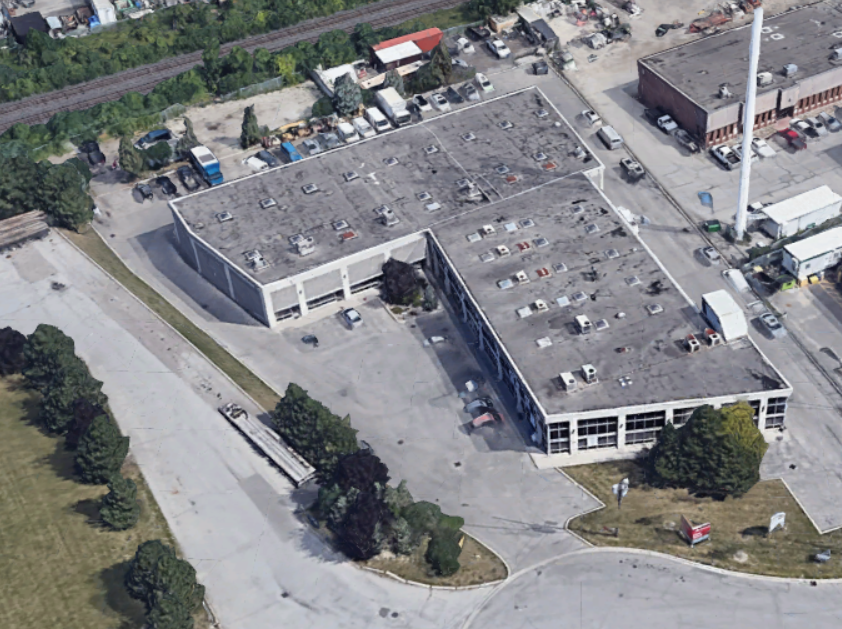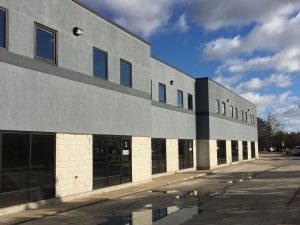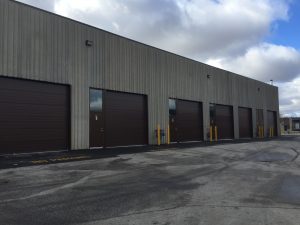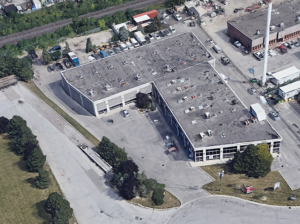
An alternative approach to finding returns in a low-yield market…
An increasing number of value-add investors are on the hunt for multi-tenant industrial buildings suitable for conversion to condominium units.
How exactly does one do that?
Well, before I explain, I think we should look at why someone would consider this move (and why it’s generally viewed as extremely favorable and lucrative…).
Theory
With historically low vacancy rates and escalating rental rates in the Greater Toronto Area’s real estate market, as well as a continued low-interest-rate environment, popularity is growing for a condominium form of property ownership.
Why?
Well, the market is made up of investors and users who can both gain from the transaction.
Investors can leverage cheap money into buying space ‘in bulk’ to then parcel off and sell in pieces based off of (much higher) values from comparable sales.
How is that even possible?
Well, simply put: smaller spaces are worth more per square foot.
Not because they’re inherently worth more, but, due to a number of factors (such as economies of scale for larger units, and strong demand and weak supply for smaller spaces), it’s what we are seeing in the market; which opens up a bit of arbitrage for risk-taking parties willing to follow the steps and deal with any potential issues (which we’ll dive into later on).
This is a fantastic opportunity for investors, because, if everything goes smoothly, they can recover their investment quickly with the initial round of unit sales and leverage trailing units for pure profit.
At the same time, a number of small- and medium-sized businesses are looking to purchase properties to remove risk and lock down their real estate long-term.
So, overall, this looks like a perfect match.
Now, the condominium conversion itself is the process of dividing real estate held under one title into individually owned units that share common elements.
There are nuances and pitfalls to watch out for when executing, however, this is an oversimplified, high-level view.
Practice
In practice, we have seen very few new condominium projects under development since most new construction has either been specific design-build or speculative construction of large big-box distribution space geared towards e-commerce companies; most of which are leased prior to completion.
Such an imbalance in supply and demand has pushed pricing quite high, so there should still be a considerable lift in values even after taking into consideration the cost of conversion.
Now let’s examine if that really is the case.
Conversions of existing industrial buildings into condominiums presents a more complex set of issues comparing to new construction.
Before proceeding with a conversion, the developer must consider the:
- real estate market for industrial condominiums,
- cost of the conversion process,
- cost and time required for physical modifications, and
- if required, comply with local building codes, and establish a separate utility service for each unit.
The potential market of buyers includes:
- businesses looking to purchase,
- current tenants, and
- investors looking for the opportunity to enter the market on a smaller basis.
For an owner-occupied industrial condominium, some benefits include:
- more control over the use and management of the unit and building as a whole,
- eliminating rent increases,
- securing the location of the business for a longer period of time than leasing might allow,
- creating equity, and
- taking advantage of depreciation.
Some of the main issues involved with industrial condominium conversions are:
- dealing with development rights,
- use restrictions,
- parking,
- maintenance concerns, and
- existing leases and tenants (a very important factor).
Let’s look at a case study: a recent conversion from a multi-tenant industrial building to industrial condominiums….
CASE STUDY 1
INDUSTRIAL CONVERSION, VAUGHAN, ONTARIO
2016 Purchase, 2017 Conversion
A multi-tenant industrial building consisting of 46 units, with an average unit size of 3,300 SF was purchased in September 2016 at the purchase price of $118.00 PSF or a 6.8% CAP rate.
Seventeen units (or 37% of the project), were sold and closed in June 2017 when the condominium was registered, at an average price of $222 PSF.
Eight other units (another 17% of the project) were sold before October 2018, at an average price of $244 PSF.
Four units sold in 2019: with unit sizes ranging from 3,000 – 13,000 SF with asking prices between $255 and $310 PSF.
One unit is currently available for sale (conditionally sold) at an asking price of $260 SF.
CASE STUDY 2
INDUSTRIAL CONVERSION, VAUGHAN, ONTARIO
2018 Purchase, 2019 Anticipated Conversion
A multi-tenant industrial building consisting of 34 units, with an average unit size of 3,850 SF was purchased in August 2018 at the purchase price of $188.00 PSF or a 3.4% CAP rate.
When comparing these two purchases, done in 2016 and 2018, we can see that in 24 months, the price PSF basically increased from $118 to $188 (or went up by 60%), and the CAP rate went down from 6.8% to 3.4% (or halved)….
This is a tremendous increase in value in a relatively very short period of time…
City of Vaughan – Industrial Condominium Market Q2 2019
Industrial Condominium Units Available For Sale
Twenty-two (22) units are currently available for sale in Vaughan between 2,000-6,000 SF with an average size of 3,173 SF, and ranging in price from $202-$539 PSF with an average asking price PSF of $342.92
Two (2) units are currently available for sale in Vaughan between 7,000-10,000 SF having an average size of 8,438 SF, and ranging in price from $238-$295 PSF with an average asking price of $266.74 PSF.
Industrial Condominium Units Sold
Seventeen (17) units have sold in Vaughan since January 2019 between 2,000-6,000 SF having an average size of 3,061 SF, and ranging in price from $215-$404 PSF with an average sale price of $318.70 PSF.
One (1) unit has sold in Vaughan since January 2019 between 7,000-10,000 SF; the property at 220 Viceroy Road. An 8,558 SF unit was sold, with an asking price of $255 PSF, and where the sale price has not yet been disclosed.
Conclusion
An Industrial Condo Conversion; what does it take?
Overall, it takes an investor who is willing to put a bit more time and energy up-front into managing the process and delaying seeing returns until the condominium is registered and compliant with building codes (which may or may not be much longer than a traditional purchase and lease).
Yet, once completed and ready for sale, the aggregate value instantly increases and allows for potentially large returns.
Disclaimer: If something like this interests you, please take this as educational and informational; as a way to show what’s possible and provoke thought and discussion. If you are considering an industrial condo conversion, please consult the appropriate professionals or give us a call to see if we can help.
Over the next weeks, we will go into more detail about the industrial condominium conversion process, opportunities, and benefits, and we will talk about Condominium Conversion Team required, the services performed, as well as the cost of conversion.
Until next week….
Goran Brelih and his team have been servicing Investors and Occupiers of Industrial properties in Toronto Central and Toronto North markets for the past 25 years.
Goran Brelih is a Senior Vice President for Cushman & Wakefield ULC in the Greater Toronto Area.
Over the past 27 years, he has been involved in the lease or sale of approximately 25.7 million square feet of industrial space, valued in excess of $1.6 billion dollars while averaging between 40 and 50 transactions per year and achieving the highest level of sales, from the President’s Round Table to Top Ten in GTA and the National Top Ten.
Goran is currently serving as President of the SIOR ‐ Society of Industrial and Office Realtors, Central Canadian Chapter and on the Board of Directors of Muki Baum Accessibility Centre, a Toronto‐based NGO which provides support to children and adults with complex disabilities.
Specialties:
Industrial Real Estate Sales and Leasing, Investment Sales, Design-Build and Land Development
About Cushman & Wakefield ULC.
Cushman & Wakefield is a leading global real estate services firm that delivers exceptional value by putting ideas into action for real estate occupiers and owners. Cushman & Wakefield is among the largest real estate services firms with 48,000 employees in approximately 400 offices and 70 countries.
In 2017, the firm had revenue of $6.9 billion across core services of property, facilities and project management, leasing, capital markets, advisory, and other services. To learn more, visit www.cushmanwakefield.com or follow @CushWake on Twitter.
For more information on GTA Industrial Real Estate Market or to discuss how they can assist you with your real estate needs please contact Goran at 416-756-5456, email at goran.brelih@cushwake.com, or visit www.goranbrelih.com.






